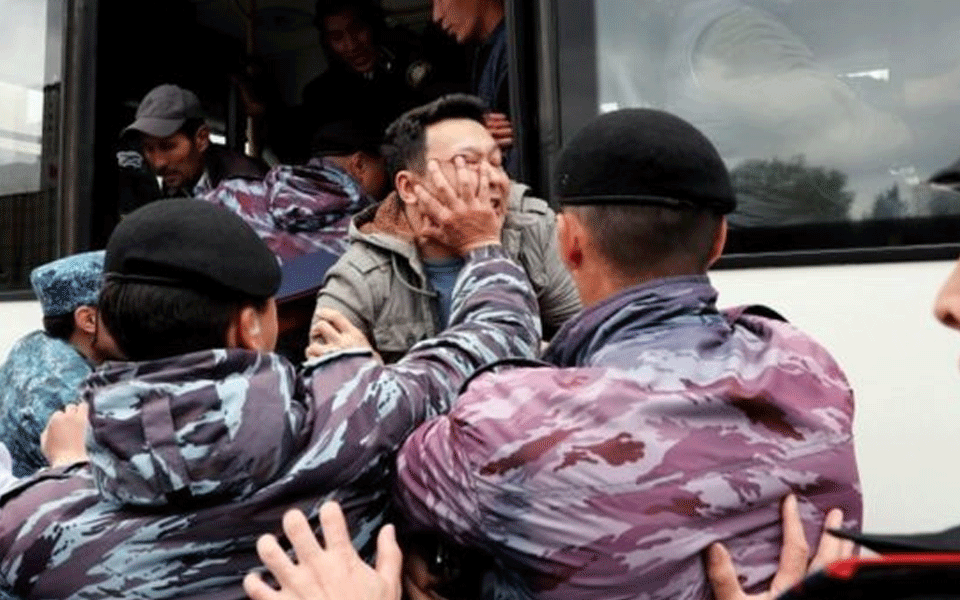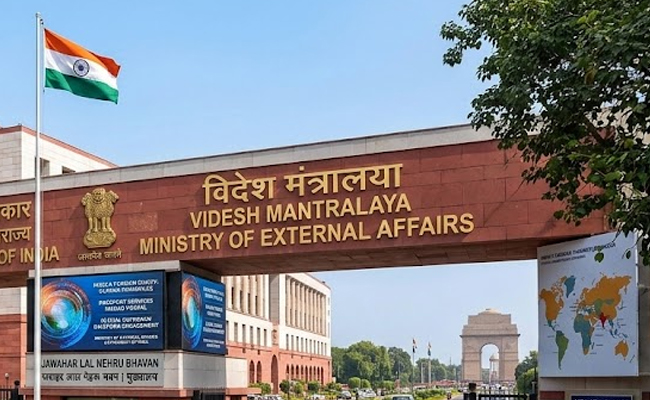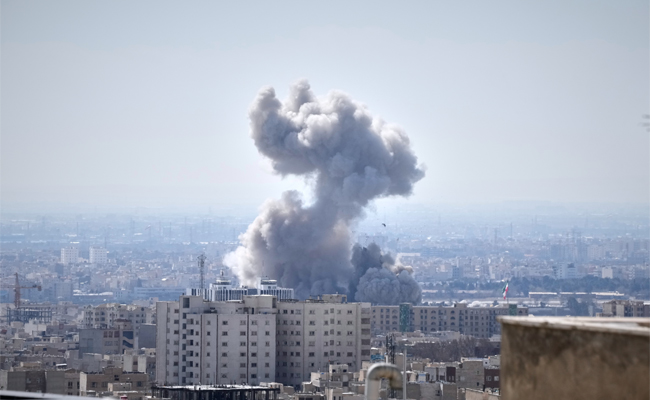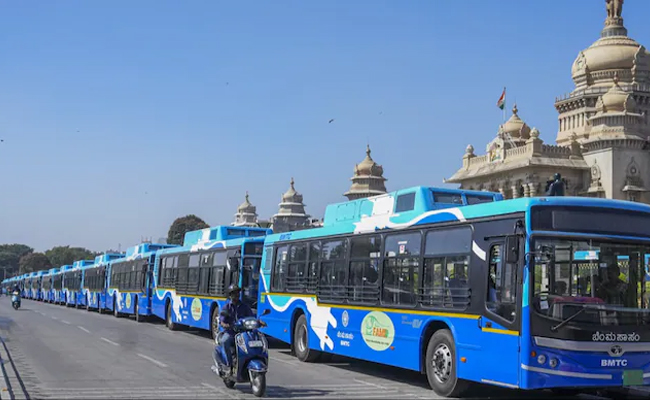Almaty:Kazakhstan on Sunday elected the hand-picked successor of former president Nursultan Nazarbayev with 70 per cent of the vote, exit polls showed, as police arrested hundreds of opposition protesters.
The victory of career diplomat Kassym Jomart-Tokayev was never in doubt after he received the blessing of powerful Nazarbayev, who had led the Central Asian nation for the last three decades.
Tokayev, 66, took just over 70 per cent of the vote, according to the government-approved "Public Opinion" pollster. His nearest opposition rival Amirzhan Kosanov had around 15 per cent.
But the day was marked by the biggest protests the Muslim-majority country has seen in three years, as demonstrators urged a "boycott" of what they said was a fixed election.
The build-up to the vote saw an intensifying crackdown on the opposition with courts sentencing protesters to short stays in jail and police raiding activists' homes.
The interior ministry said around 500 people were arrested on Sunday, with deputy minister Marat Kozhayev blaming "radical elements" for holding "unsanctioned" rallies.
Two AFP journalists were among those detained in largest city Almaty, where police broke up a protest involving several hundred people.
Protesters shouted "shame, shame, shame!" and said "police come to the side of the people" as officers moved in on the crowd. One AFP correspondent was taken to a police station before being released while another had video equipment confiscated.
Journalists for Radio Free Europe/Radio Liberty and an independent local news site were also arrested, as was a representative of the Norwegian Helsinki Committee rights NGO. They were all later released.
Dimash Alzhanov, a noted civic activist and political analyst, was arrested and was still being held on Sunday evening. Turnout in the election was around 77 percent, the Central Election Commission said earlier in the day.
Nazarbayev's announcement in March that he was stepping down from the presidency and naming Toyakev interim leader shocked Kazakhs who had lived under his rule since Soviet times.
But the 78-year-old, who turned the country of 18 million people into an energy powerhouse while governing with little tolerance for opposition, is still expected to call the shots from behind the scenes.
As he voted, Tokayev told reporters in the capital Nur-Sultan that Nazarbayev was "still in power in the capacity of chairman of the security council... and other capacities".
Marat Sagyndykov, a 65-year-old retired civil servant told AFP he had voted for Tokayev "in order to continue the course of the Leader of the Nation", referring to Nazarbayev's constitutionally designated status.
"I think in 30 years we have had some successes. There have been negatives, too, but they exist in all countries," he said.
Aslan Sagutdinov, a video blogger who was detained last month for holding up a blank placard at a protest, told AFP in an email he was not taking part in the election.
"If you vote in unfair elections you are allowing them to say they are fair," said Sagutdinov, who lives in the northwestern town of Uralsk.
Four years ago Nazarbayev scored nearly 98 percent of a virtually uncontested vote where the official turnout was 95 percent.
No Kazakh vote has ever been recognised as fully democratic by the Organisation for Security and Cooperation in Europe (OSCE), which sent more than 300 observers to monitor this election.
One of Tokayev's first acts as interim president was to propose that the capital Astana -- which Nazarbayev transformed from a steppe town into a million-strong city -- be renamed "Nur-Sultan" in honour of his mentor.
The change went ahead without public consultation.
There was only one candidate who was openly in opposition in the race, journalist Amirzhan Kosanov, who has criticised the government.
However, even his criticism was vague, rather than directly attacking either Tokayev or Nazarbayev.
Human Rights Watch called the prospect of a genuine political transition "an illusion" and noted the persistence of rights abuses under Tokayev's interim presidency.
"Kazakh authorities routinely break up peaceful protests, forcibly round up participants... and sanction them with warnings, fines, and short-term imprisonment," the watchdog said.
Let the Truth be known. If you read VB and like VB, please be a VB Supporter and Help us deliver the Truth to one and all.
New Delhi (PTI): The Ministry of External Affairs (MEA) has set up a control room to assist those affected by the escalating crisis in West Asia.
The MEA has said almost one crore Indian citizens live in West Asia and their safety and well-being is of "utmost priority" for New Delhi.
As the Iran-US conflict widened, the Indian embassy in Iran moved hundreds of Indian students from the Iranian capital of Tehran to safer locations.
"A Control Room has been set up in the Ministry of External Affairs in view of the current situation in West Asia and the Gulf region," the MEA said on Wednesday.
"The Control Room can be contacted from 9 am to 9 pm at: 1800118797 (Toll Free) +91 11 2301 2113, +91 11 2301 4104, +91 11 2301 7905," it added.
The US launched military strikes on Iran on February 28, killing Iranian Supreme leader Ali Khamenei.
Following the military offensive, Iran has carried out a wave of attacks mainly targeting Israel and American military bases in several Gulf countries, including the UAE, Bahrain, Kuwait, Jordan and Saudi Arabia.
The MEA on Tuesday noted that almost one crore Indian citizens live and work in the Gulf region, and their "safety and well-being is of utmost priority."
"We cannot be impervious to any development that negatively affects them," it said.
The MEA said New Delhi will continue to closely monitor the evolving situation and take relevant decisions in the national interest, adding it is in touch with the governments in the region as well as other key partners.
A Special Control Room has been set up in the Ministry of External Affairs in view of the current situation in West Asia and the Gulf region. Details are as below ⬇️
— Randhir Jaiswal (@MEAIndia) March 4, 2026
🔗 https://t.co/nK3d6SY9Pa pic.twitter.com/v2EhUI5B1x




